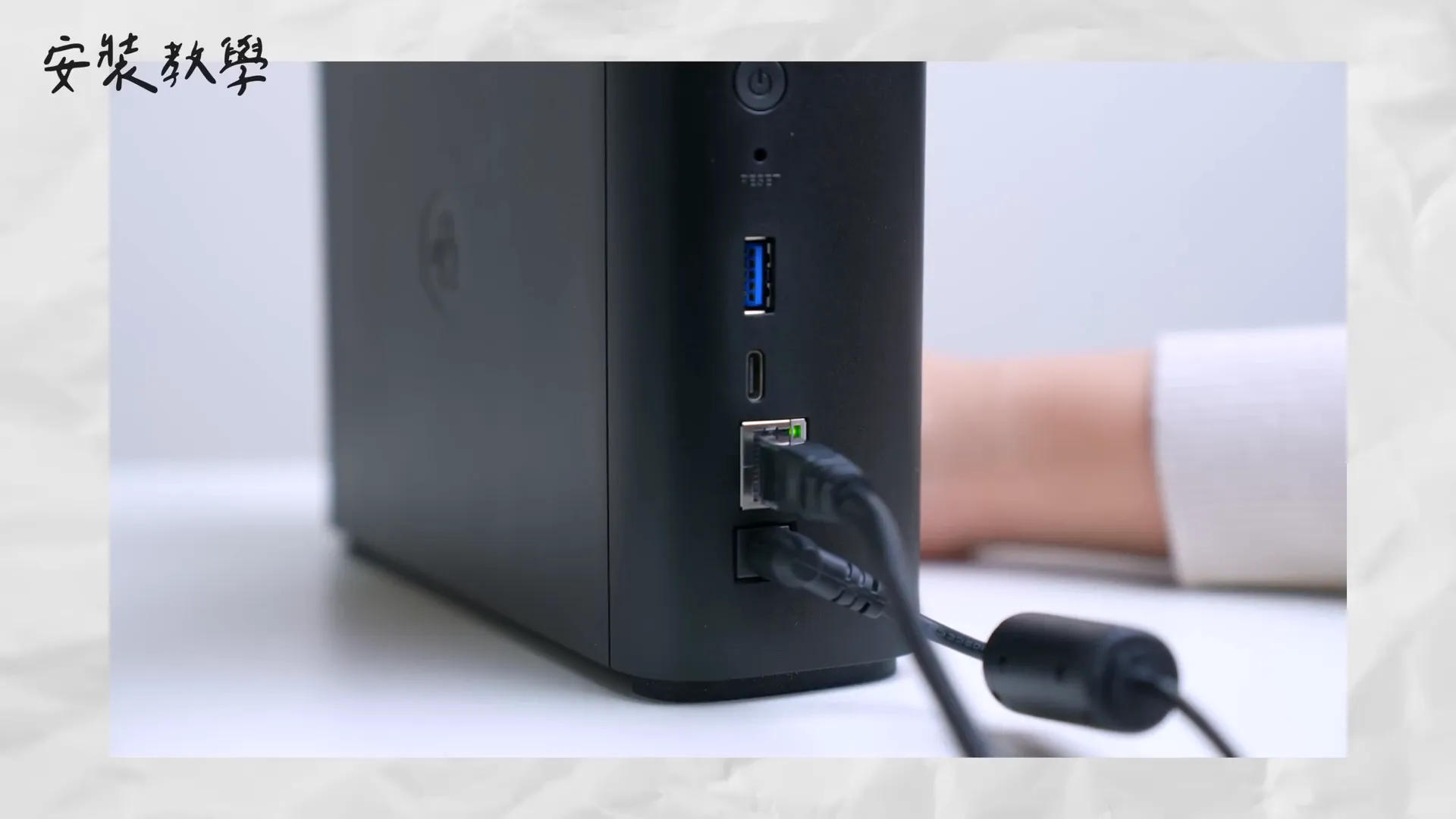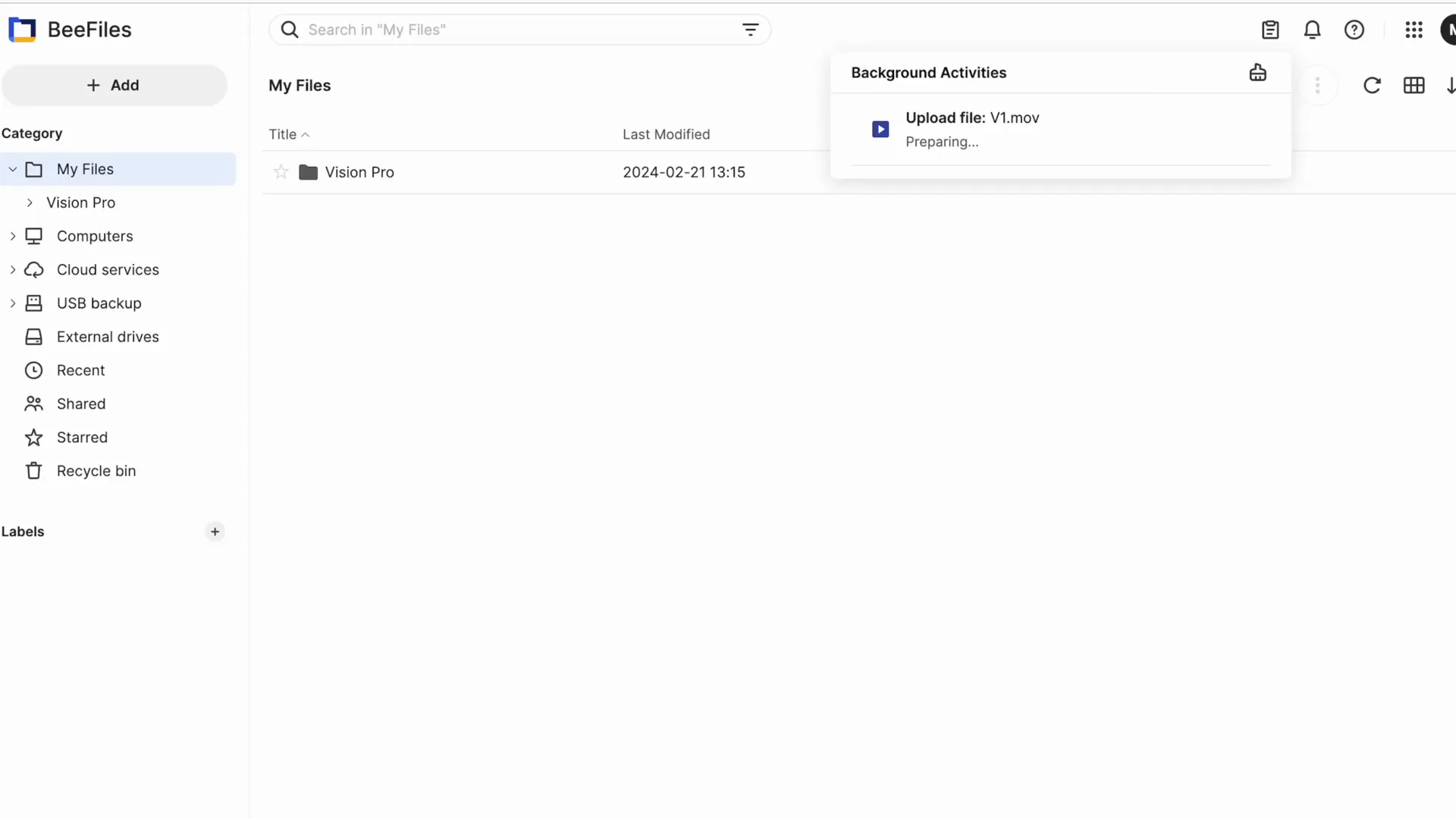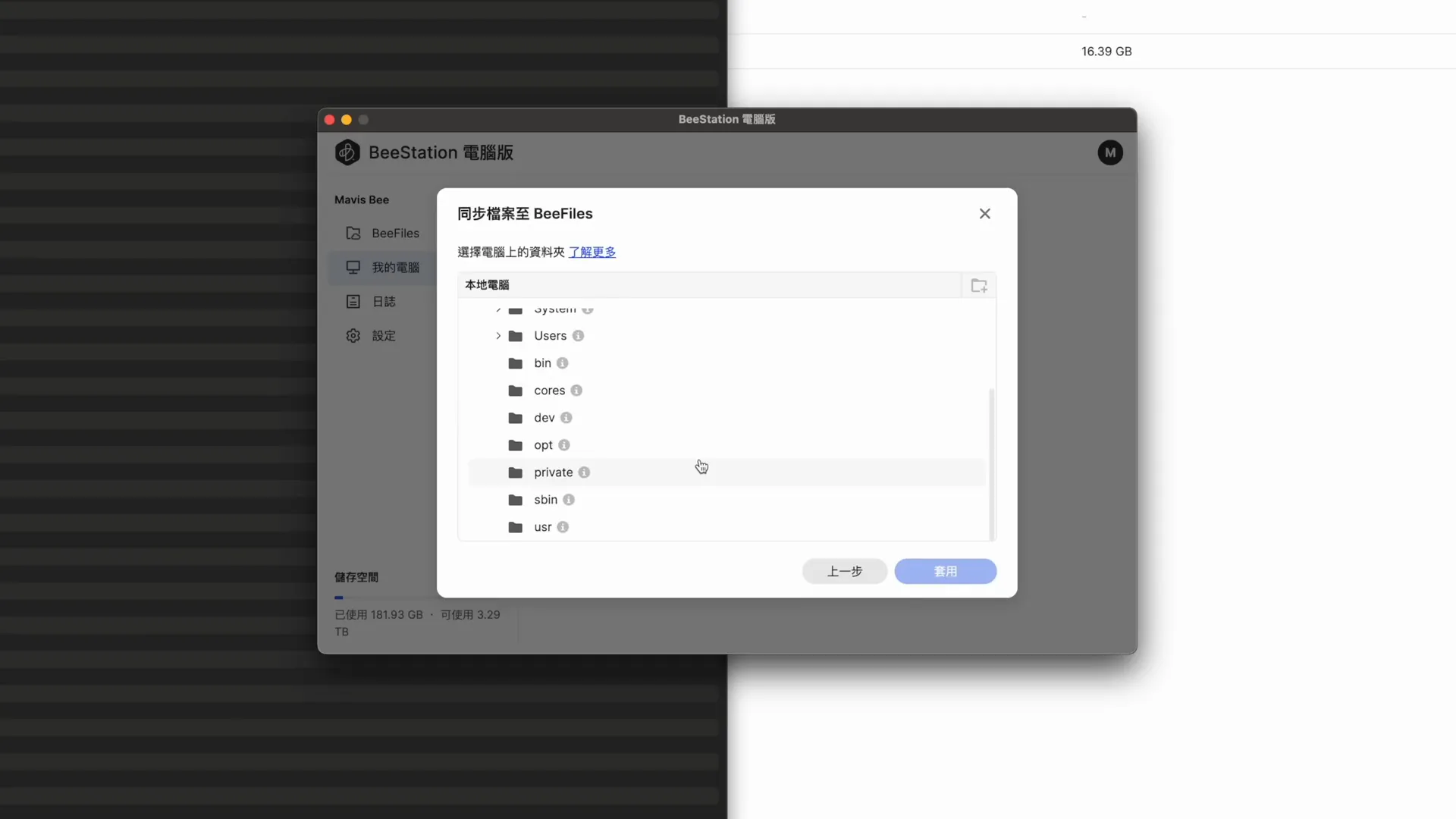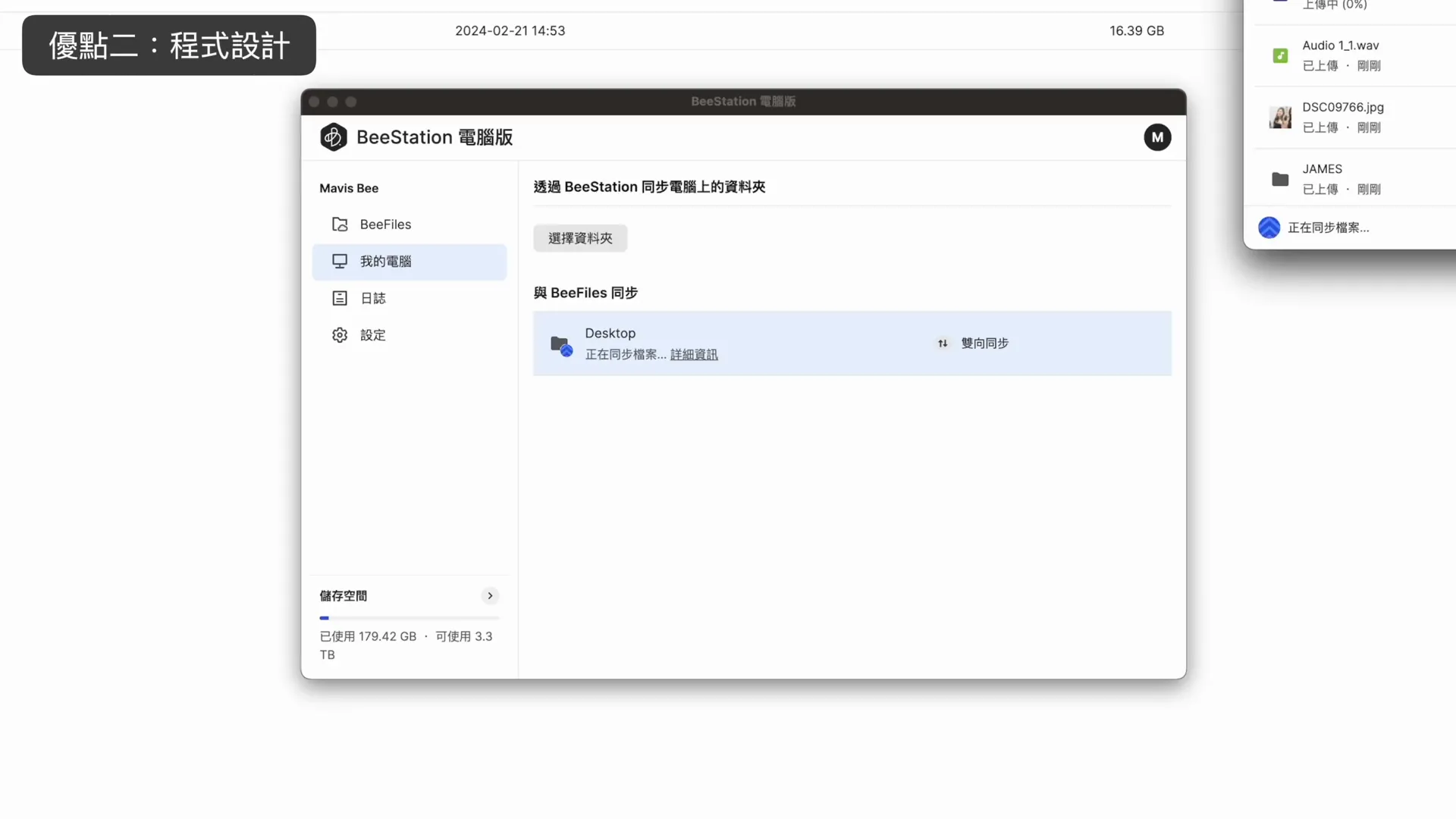In this comprehensive review, we dive into the features, installation process, advantages, and disadvantages of the Synology BeeStation, a device positioned between traditional HDDs and NAS systems.
Discover whether this innovative product can truly replace your NAS setup and who it is best suited for.
Introduction to Synology BeeStation
The Synology BeeStation offers a unique blend of traditional HDD and NAS functionalities, catering to those who find NAS setups intimidating. Unlike its older generation, DS-220j, BeeStation is known for its streamlined installation and user-friendly interface, it serves as an excellent entry point for individuals seeking a reliable storage solution without the complexities often associated with NAS systems.
Design and Interface Overview
The BeeStation boasts a sleek design resembling a conventional external hard drive. It is currently available in a single capacity of 4TB, priced at HKD 1849. The device features a straightforward interface with a power button, reset button, and LED indicator on the front, while the back includes a 1 GbE LAN port and both USB-A and USB-C connections. This simplicity makes it accessible for users of all tech levels.
Installation Process Simplified
Setting up the BeeStation is a hassle-free process. Users simply connect the power supply and LAN cable to their router. After scanning the QR code located at the bottom of the device, the setup interface appears. Registration and connection take mere minutes, making it a stark contrast to traditional NAS installations, which often require extensive technical knowledge and configurations.


Key Features and Applications
BeeStation’s primary selling point is its cloud-like functionality, similar to services like Google Drive. Users can upload and download files from anywhere, making it a versatile storage solution. The device also allows for data backup, seamlessly syncing photos and videos from mobile devices, akin to iCloud. This makes BeeStation an attractive option for those looking to manage their digital assets efficiently.


Mobile Functionality: BeePhotos
BeePhotos is designed for mobile and tablet users, making it especially beneficial for those who primarily use these devices for photography. Uploading photos is straightforward—users select their desired images and upload them to BeePhotos. The app also offers backup features for entire photo libraries, allowing users to choose whether to back up all photos or only new ones. This flexibility ensures that users can manage their storage needs effectively.
Mobile Functionality: BeeFiles
Similar to BeePhotos, BeeFiles caters to a broader range of file types, including documents, videos, and images. This app provides a more comprehensive storage solution while maintaining a user-friendly experience. Users can choose to keep files organized or simply save everything in one place, depending on their preferences. This dual-app structure allows for customization based on individual usage patterns.


Computer Integration and Usability
The BeeStation also offers a web-based interface for both BeePhotos and BeeFiles, functioning like Google Drive. Users can drag and drop files for easy uploads, and the platform supports integration with existing cloud services like Google Drive, OneDrive, or Dropbox. This feature enhances accessibility and usability, making file management seamless across platforms.


Automatic File Synchronization
For desktop users, the BeeStation application is available for both Mac and Windows, allowing for easy file transfers and management. The application can be linked to external hard drives, enabling users to upload data directly from their existing storage devices. Automatic file synchronization ensures that any changes made on the computer are reflected on the BeeStation, providing a reliable backup solution.


Pros and Cons of BeeStation
One of the standout advantages of the BeeStation is its low learning curve. New users can easily navigate the setup process and application functionalities without prior technical knowledge. Additionally, the app’s design is intuitive, making it accessible to many users. Price-wise, BeeStation presents a cost-effective alternative to traditional cloud storage services, especially for those looking for a one-time purchase solution.


Limitations to Consider
However, there are limitations to the BeeStation. The absence of RAID or SHR capabilities means that data redundancy and protection against hardware failure are not options. Furthermore, with only a 4TB capacity available, it may not meet the needs of users with larger storage requirements. This makes it essential for potential buyers to assess their storage needs before opting for the BeeStation.
Who Should Use BeeStation?
The BeeStation is ideal for individuals seeking a private cloud platform without the complexities of NAS systems. It suits users who primarily rely on mobile devices and need a straightforward method for backing up and sharing files. For those who frequently upgrade their phones, BeeStation offers an easy solution to transfer data without cluttering new devices.
When to Choose NAS Instead
Conversely, users who require robust data protection and larger storage capacities should consider traditional NAS systems. Businesses or individuals needing extensive backups and scalability will benefit more from the features offered by NAS devices. The choice ultimately depends on the user’s specific needs and tech comfort level.
Speed and Performance Considerations
When comparing the BeeStation’s performance to cloud services like Google Drive, users may notice slightly slower upload and download speeds. However, optimizing router settings, such as enabling port forwarding, can significantly improve performance. This aspect is crucial for users who prioritize speed in their data management tasks.
Computer Access: Web Interface
The BeeStation provides a web interface that allows users to access their files from any device with an internet connection. This feature is particularly beneficial for users who prefer managing their data from a computer rather than a mobile device. The intuitive layout resembles popular cloud storage services, making it easy for anyone to navigate.
Using the Web Interface
To access the BeeStation via a web browser, simply enter the device’s IP address. Once logged in, users can upload, download, and manage files effortlessly. The drag-and-drop functionality simplifies the process, allowing for quick uploads directly from the computer.
Desktop Software: BeeStation App
The BeeStation app enhances the user experience by providing a dedicated platform for file management on desktop systems. Available for both Mac and Windows, the app offers seamless integration with the BeeStation device, allowing for automatic backups and synchronization.
Features of the BeeStation App
- Automatic File Backup: Users can set preferences for automatic backups, ensuring that important files are always protected.
- File Synchronization: Changes made to files on the desktop are automatically updated on the BeeStation, keeping all devices in sync.
- Easy File Transfer: The app allows users to transfer files between the BeeStation and other devices with ease.
Advantages of Using BeeStation
BeeStation stands out for its combination of affordability, user-friendliness, and essential functionalities. It provides a cost-effective solution for personal cloud storage without the need for complicated installations.
Cost-Effective Solution
Compared to traditional NAS systems and ongoing cloud subscriptions, the BeeStation offers a one-time purchase option. This affordability allows users to save money while still enjoying reliable storage capabilities.
User-Friendly Interface
The design of the BeeStation interface is tailored for all user levels. Its straightforward navigation ensures that even those with minimal technical skills can use the device effectively.
Choosing Between BeeStation and NAS
When deciding between BeeStation and a traditional NAS, it is crucial to assess your specific needs. BeeStation serves well for users looking for simplicity and essential features, while NAS systems cater to those requiring advanced functionalities and scalability.
Considerations for Choosing NAS
- Data Redundancy: NAS systems typically offer RAID configurations, providing data protection against hardware failures.
- Scalability: With the ability to add more drives, NAS systems can accommodate growing storage needs.
- Advanced Features: NAS devices often include additional functionalities such as media streaming, virtualization, and more complex backup solutions.
Tips for Optimizing Speed
While the BeeStation offers decent performance, users can take steps to enhance upload and download speeds. Here are some tips for optimizing speed:
Router Configuration
Adjusting your router settings can significantly impact performance. Enabling port forwarding allows direct access to the BeeStation from external networks, which can improve data transfer speeds.
Network Connection
Using a wired Ethernet connection instead of Wi-Fi can provide a more stable and faster connection. If Wi-Fi is necessary, placing the BeeStation closer to the router can help reduce latency.
Regular Maintenance
Keep the BeeStation’s firmware updated to ensure it runs optimally. Regularly check for updates to maintain security and functionality, which can also enhance performance.
Conclusion
In summary, the Synology BeeStation is a remarkable alternative for users seeking a straightforward and efficient storage solution. Its blend of essential features, ease of use, and affordability make it an excellent choice for individuals and families.
However, for those requiring extensive backup solutions and advanced functionalities, a traditional NAS may still be the best option.
Or if you are still on the fence between NAS or Cloud Storage for a home user like you.
Whether you choose the BeeStation or a NAS, understanding your storage needs will help you make the best decision for your digital lifestyle.

Leave a Reply